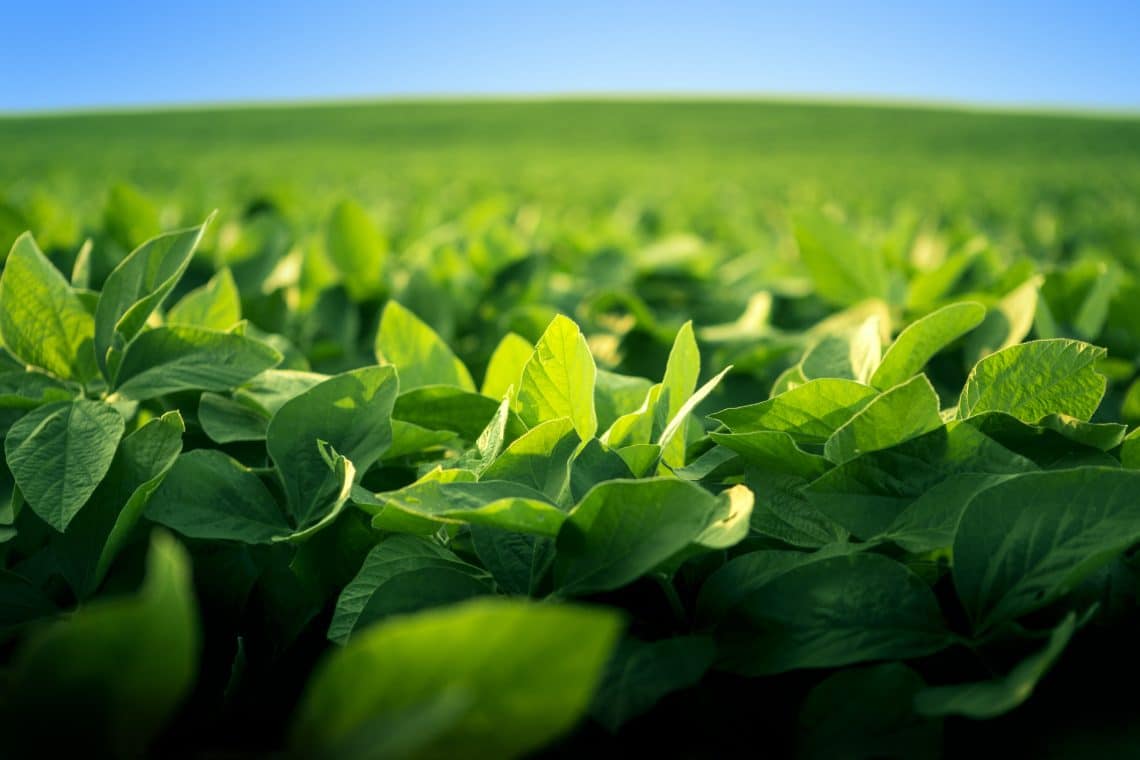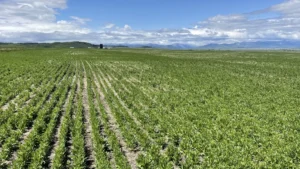Yield10 Bioscience, Inc. announced today that it has granted a non-exclusive research license to Monsanto Company to evaluate its novel C3003 and C3004 yield traits in soybean. Under the license, Monsanto plans to research both traits within its soybean pipeline as a strategy to improve plant yields. Yield10 Bioscience is focused on “building better plants” by developing proprietary, breakthrough technologies that produce higher yields in major food and feed crops to enhance global food security using lower inputs of land, water and fertilizer.
Yield10’s “Smart Carbon Grid for Plants” advanced metabolic engineering technology platform incorporates sourcing of new metabolic functionality from non-plant systems with sophisticated models of carbon-flux pathways to identify gene targets that enhance carbon capture from photosynthesis and regulate the flow of carbon to seed. Derived from algae, C3003 represents the lead plant trait in this platform. C3004, another platform trait, is believed to play a role in carbon partitioning. Monsanto plans to conduct research with C3003 and C3004 individually and in combination to evaluate the effectiveness of the trait stack.
“The early development work with C3003 and C3004 in oilseeds and the mechanisms are very interesting, and we are excited to have the opportunity to explore the potential of these yield traits in soybean,” says Janice Edwards, Ph.D., director of Yield Traits and Disease, Monsanto. “We are also impressed by Yield10’s metabolic engineering and advanced carbon flux modeling capabilities, as Monsanto is committed to developing solutions that meet farmers’ important needs, while positively affecting modern agriculture’s carbon footprint and overall sustainability.”
“Monsanto is a worldwide leader in soybean research, and we are pleased that they have chosen Yield10 and our novel C3003 and C3004 traits for integration into their soybean program,” says Oliver Peoples, Ph.D., CEO of Yield10. “The Yield10 team looks forward to supporting Monsanto with further insights from our research to contribute to their R&D success with the technology.”
Soybean is an oilseed crop used for animal feed, food, and food additives. It is the second highest value agricultural crop in the United States with the 2016 harvest estimated at over 4.31 billion bushels (USDA1) and a value of approximately $41 billion. Soybeans are widely cultivated in North and South America where a majority of the seed that is grown is genetically modified for crop enhancements, such as increased yield or pest resistance. Demands for agriculture are growing and evolving with a growing global population, rising middle class and shifting diets. As a result, increases in commodity crop yields are needed to keep pace with growing global demand for food security as well as to increase crop yield on agriculture’s existing footprint.
Background on Novel Yield Gene Trait C3003
Yield10’s C3003 novel yield gene trait is part of a system in algae that enables carbon fixation in low CO2 environments and appears to be a unique gene that impacts photorespiration, a biochemical pathway in C3 photosynthetic plants which is responsible for significant losses in yield. The purpose of increased seed yield is to enable farmers to increase the productivity of their land. Yield10 is progressing the introduction of C3003 as well as improvements to the C3003 trait, in Camelina, canola, soybean and rice, and expects to report additional results from a number of these activities throughout 2017 and 2018.











